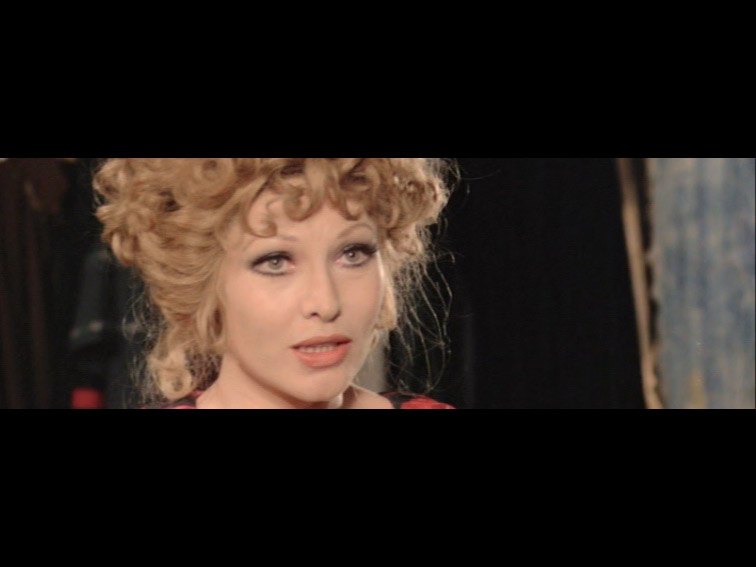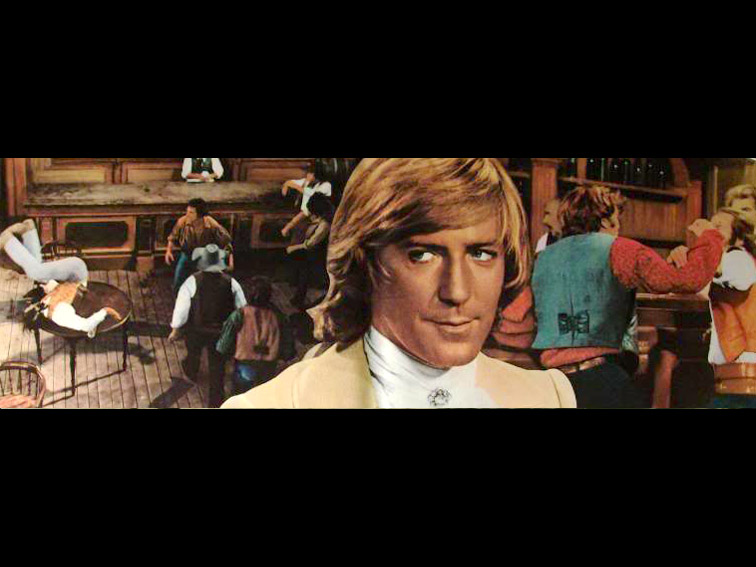Just noticed that there’s an interview with Franco Nero on Box Office Magazine. Loads of stuff about Cars 2, but also some more interesting questions as well, which I’ve included below (including a bizarre segway into The Visitor, of all things…)
You have always sort of enjoyed this flirtation with Hollywood, but you obviously have a huge career in Italy.
I’ve been doing movies all over the world. I’ve done movies with 30 different countries with directors from 30 different countries. I’ve been very lucky to work with everybody.
Have you ever felt limited at all? Do you feel like Hollywood has been as attentive as they should be to your work? Have they given you the sort of opportunities you feel like you deserved?
I felt that I could have had more chances in America, but that was my choice. When I went to America for the first time I did Camelot, the musical, I had a contract with Jack Warner to do five movies. I said to Jack after Camelot, “I’m homesick. I need to go back to Europe.” He said I was crazy and that I was going to be a big Hollywood star. I said, “No. I want to be in Italy and Europe where I feel more comfortable.” He said, “I think you’re crazy,” but he canceled the contract. And I think that it’s a question of choice. I could have stayed in America and done American movies, but that was my choice. I still managed to work with all the top European directors from all the countries. In Italy I worked with the top Italian directors, in Spain I worked with Luis Bunuel, in Germany with Fassbinder, in Russia with Sergei Bondarchuk, who won the Oscar for War & Peace, in France with Claude Chabrol. I managed to work with all of the best directors in the world. Once in a while I did a few American movies. Recently I did Letters to Juliet and everybody loved it and it was quite successful. And I’m sure that Disney decided to hire me after Letters to Juliet with Vanessa, where we’re playing together. But now I have a few offers and maybe I will do some more American movies.
When Django first came out, did you have a sense at the time that it was going to become a phenomenon?
No. We had no idea. We just did the movie, and then after the movie opened in Italy, it was a huge success. In a few months, all over the world, it was an incredible success. I remember that in many countries, instead of Franco Nero, they put Django in the hotels when you go to check in. I just said, “Okay.” Actually in Germany they went crazy about Django. They started to call all of my movies that were shown in Japan, “Django.” It was like an obsession. People always ask me why I think Django was such a success. I don’t know. Maybe it’s because he was a representation of male, young workers and they wanted to be Django. They wanted to go to their bosses and say, “Hey man! From now on, the situation is different.” Because he was cool and so different from the American westerns. It was like a samurai-Japanese movie.
Quentin Tarantino has his Django movie in the works. Have you already signed up to do that? What can you tell me about it?
It is a very funny story. It’s a very incredible story. Tarantino has always been a great friend of mine. Two years ago, I was doing a movie in Spain for Miramax with Penelope Cruz. She played my daughter in this movie called Talk of Angels and she went one day to San Sebastian to the festival and when she came back the next day, she said, “Franco, there was Quentin Tarantino and when I said to him that I was doing this movie with you he said, ‘Bring him here! I want to meet him!'” So that was the first time I knew he really loved my work and followed my work. So he did a few interviews in the newspaper and television and kept saying, “Franco Nero! Franco Nero! He’s my idol.” Finally, he came to Italy for Kill Bill and Harvey Weinstein went on this speech to present the movie and said [Tarantino] was sick and he couldn’t come, but he said “He begged me to say if Franco Nero was in the audience please say, ‘Hello.'” So finally, about two years ago, he came to Rome and he said to the production, “I need to meet Franco.” Finally they got a hold of me and we had lunch together. He told me the story. He said, “Franco, when I was 14, I started doing movies and videos.” He knew the lines of my movies and also he started to do the music too. So he said, “We’re doing a Western. Would you be so kind to cameo?” and I said, “Oh yeah!” I know about the Western he is trying to do. I was sure, very sure, I would do it. Then I was in Berlin with Vanessa and Harvey Weinstein was there and he said, “Oh, Franco! You’re going to be in Tarantino’s movie?” I didn’t know anything, so I came to America and some newspaper wanted to know. I said I don’t know. So this story said “Franco Nero will be in a Tarantino movie.” I know he [Tarantino] saw Django. I did Django many years ago before I came to America and Django was the most successful movie around the world along with A Fistful of Dollars. So every time Tarantino and I spoke, he wanted to know everything about Corbucci, the director of Django. And then I said to him, ‘Quentin, we are going to do a Western. It would be an homage to Sergio Leone and John Huston, the director that discovered me, and would you be so kind to play a cameo?’ And he said, ‘Oh yeah! What do I have to do?’ I said, actually there are three bandits, and I have to kill them all, and he said, ‘Oh, great, so I can come with Robert Rodriguez and my friends to play them.’ I said, yeah! That would be great! He said, ‘But how are you going to kill me?’ I said, “I’ll tell you: with a shotgun, and inside, instead of having bullets, it will be gold coins. He said, ‘I love it!’”
Do you come to the United States very often?
I was there in February because we do a week of Italian cinema at the Egyptian theater the week before the Oscars. I’m one of the organizers of these festivals. We do it every year and we’ve been doing it for the last five years so that’s the reason why I come during that period. I go to New York quite often because I have grandchildren there and Vanessa’s been doing Broadway. She’s been doing Driving Miss Daisy.
You’ve done so many Italian movies. Is there a movie that you think people should go see which you are the most proud of?
Django was a very commercial movie, but I’ve done fantastic Italian movies with the top directors like Elio Petri, who won an Oscar for Investigation of a Private Citizen. I did all the best movies in the ’70s, ’80s, and late ’60s. Now the Italian cinema is not the same anymore because now there is no industry. In the ’60s we had the best industry in the world, you know? We were producing like 400 movies a year and there was space for everybody. The producers were making a lot of money with commercial movies and had money to do quality movies with the top directors. Now it’s not the same. There’s a lot of TV. They do a lot of these miniseries or series that I don’t like—I like cinema. So in Italy, I try to do good movies with young directors. I directed a movie myself about three years ago called Forever Blues and it showed at the New Orleans Jazz Festival. I was there four days and I went with my band and we did a concert and they showed my movie. They liked the movie very much. They don’t really show movies there so it was very, very interesting. It was very nice. So it was a movie that I directed, I wrote, I produced, and I acted in. But I’m very privileged because in recent years in Italy there are very few movies. I have offers. I do movies in Hungary. I played the hero of Hungary a few years ago. I played the hero of Yugoslavia. Like I said, recently I just finished a movie in Brazil called Lucia Murat, a really great director. I do movies in England, Germany. I’m lucky I have so many offers from different countries, so I’m very privileged.
A weird film of yours I recently saw was La Stridulum, or The Visitor, from 1979. That movie is crazy. You’re playing Jesus, there’s an 8-year-old little girl that gets a handgun for her birthday and Shelley Winters plays a psychic nanny.
Yes. They put my name on that movie. [Laughs] Because I’ll tell you. You know why I did that movie? I wanted to meet the director that discovered me, John Huston. I play this sort of Jesus Christ of the future, you know? I did this cameo just for fun because it was a scene with John Huston, and I owe him everything. He’s the one who suggested me for Camelot and he’s the one who taught me English. John Huston, for me, I really owe him a lot. So I just did it for fun.
Do you remember the making of it at all?
Well, it’s like last year—I’ll tell you this funny story. Last year, they wanted me to play a cameo in The Rite with Anthony Hopkins. They needed an actor who spoke good English and I had to really do like six pages of script. A long monologue teaching at the Vatican. It was a long scene and I accepted and said, “On one condition, that you don’t put my name under any billing.” They accepted, so I did the scene and they loved the scene. But then I was in New York and I said to Vanessa, “Lets go see this movie. I have a cameo.” We went to see the movie with a few friends, and of course, I wasn’t there. The entire scene was cut! But it happens sometimes in movies.

